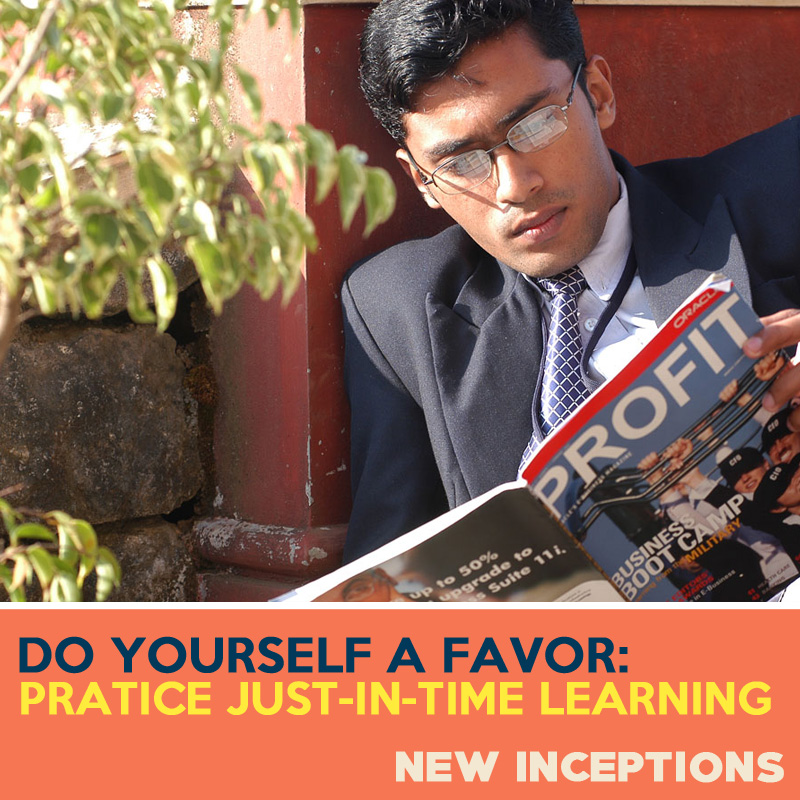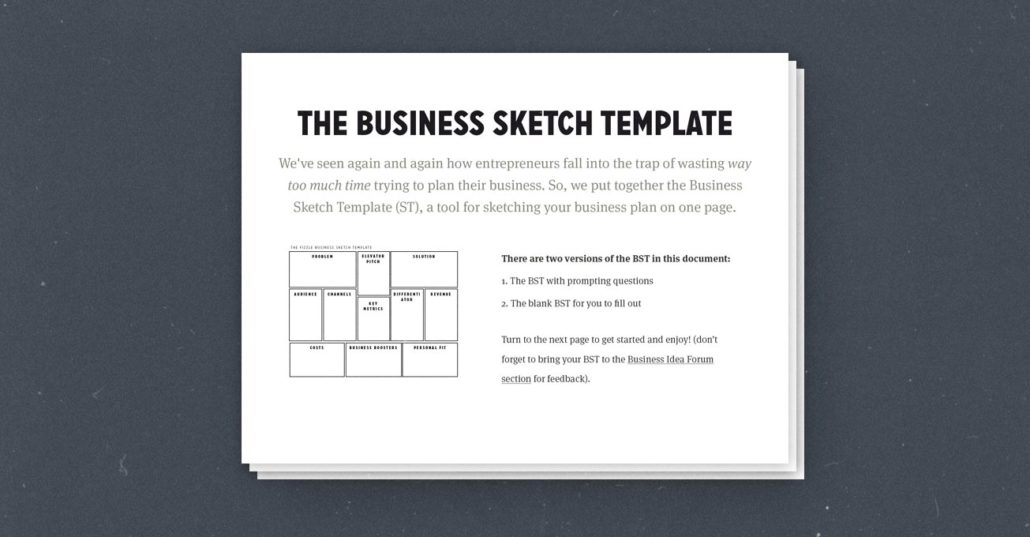How to Live Your Dreams: A Definitive Guide
Whether you call it living off your passion, living your dreams, or simply working your mission, it’s no secret that if you really want to be successful in life, you’re going to have to do what satisfies you.
Those that find that satisfaction in a traditional job (where they’re working for someone else) are increasingly becoming the minority.
A Forbes article in 2014 showed 52.3% of Americans are unhappy at work. Sure, we’ve been climbing back up since 2010 – but when you look at the entire picture, we’ve been on a slide since 1987.
This said, it’s simple to understand why more and more people are opting to work for themselves. It’s the one way we can control our day to day working lives.
However, there are certain questions that come up time and time again when starting on this path.
In this guide, I’ll be looking at some of the most common concerns folks have when starting out with their first business and everything you need to get over those humps yourself.
Let’s get started.
Table of Contents
Chapter 1: Passion is Optional – But it Helps!
There are two people that many people think of when the term passion is discussed. On one side, you have Gary Vaynerchuk, who says that if you want to stick with a business through the thick and thin, then it helps to have found your passion before you get started.
On the other hand, Mike Rowe of Dirty Jobs fame says that many of the folks that he’s talked to over the years have found out that they’re good at doing a certain job. After doing that the job for awhile, the passion follows.
For me, I’ve come to the conclusion that passion is nice to have. BUT – it’s not everything.
Find Your Mission
What is everything is an idea that David Anderson shared in his TEDx talk. He says that we need to have a mission in our life. Figuring out what this mission is for ourselves is truly how we’re going to succeed in whatever we do; we’ll make our career decisions based on that mission.
Now, to to find that mission you’ll have to put some time in and try some things out and see if you like them. You can’t just say “Oh, hey, yeah – I like to do <insert cool thing here>. You’ll really have no idea.
It’s important to go take dumb action, or what I like to call it, perform self-experimentation. You need see what you like to do, and then mold your mission around what you’ve learned from that action.
That’s really what you should be doing in the first 20+ years of your life: testing the waters. I believe that’s why many kids who have guided their own homeschooling properly are set up for success. They get to figure out what they like to do as opposed to formal education telling them.
I found a great guide to help you find your passion/mission. It’s over at Live Your Legend. Back in 2012, Scott Dinsmore (RIP, buddy) wrote about The 3 Simple (& Absolutely Required) Steps to Doing Work You Love: Live Your Legend’s Passionate Work Framework. This was one of many tools that I’ve used to find my own mission.
Chapter 2: How to Start a Business without a Degree?
They say that experience is the best teacher. So I make it a point to pay attention to people who have results that I want.
I’ve been doing this since college because I learned back then that there are definitely folks who teach things that they have no experience at. There were professors who taught business, even though they had never left academia. It was pure speculation or hearsay that’d they use to power their courses.
Likewise, in the rest of the world, there are people who never graduated college who are some of the best business teachers.
Recently I’ve been learning more about Russell Brunson and his Clickfunnels empire. In his new book, Expert Secrets, he wrote about how even he had the imposter syndrome early on. But now, 10 years later, he’s considered by many to be one of the big experts in online business!
Unless you’re going to start working with something that is highly specialized and regulated, then yes, you probably should get training before hand to do it. This would include some doctors, lawyers, dentists, construction, trainers, engineers, etc.
While not all of these require the same amount of education, they all should know what they’re doing before they get started.
Just in Time Learning
Now, if you’re starting a business on something that doesn’t require previous education to get rolling, then you have the ability to be only one step ahead of the people you’re trying to serve.
In fact, when you’re getting going, that’s probably as far as you want to be. Because if you have much more, you might overload your brain with information you might not be ready for.
The way to do be only one step ahead of the folks you’re trying to serve is called Just in Time Learning. Note: You can also apply this method of learning to anything in life, not just what you’re helping clients with. If you’re looking to build a new skill, then practice it then. If you’re learning how to be more social – that’s a great time as well.
Note: If you’re interested in learning things quicker, then you should check out Jim Kwik.
His most recent interview I heard of his was with Jordan Harbinger. But he’s also been on the School of Greatness and other podcasts. If you like what you hear there, check out his show here.
Chapter 3: Is a Business Plan Needed?
When I was still studying at Purdue’s Burton Morgan Center, one of the things that came up again and again were business plans. In fact, it became so popular that there were business plan competitions. I’m sure there still are.
Truth be told, unless you’re partnering up with some folks, whether as co-founders, investors, or key clients, then you’re not going to need a traditional business plan.
However, what you’ll need to do is make sure you have focus and clarity in what you’re actually helping people do.
A resource I wanted to share with you guys is something our friends over at Fizzle put together.
It’s called the Business Sketch Template.
Business Mission Formula
Also, for the times when you need to express what you’re doing in a summary format, you can use the Business Mission Formula.
In this post, I shared a formula that goes like this:
I help X (your “niche” audience): _____________
Do/Understand Y (something you’re good at helping people with): _____________
So that they can Z (a benefit your audience would want): _____________
Which then, for me, I turned into:
I help aspiring and veteran entrepreneurs, artists, and experts
Discover, share, and monetize their life’s work
So that they can live a lifestyle they’re truly proud of.
Not only do you get a simple mission, but you also get an elevator pitch that you can share with others about what you actually do.
Wait, There’s More!
One more thing that I want to share with you guys from Fizzle is this awesome post where they shared 10 Steps to Start a Business. It’s a good follow up piece that I think you need to consider when starting your business.
Chapter 4: How to Know When It’s the Right Time to Start
There is no right time. Period.
Ok, so those of you who know me, might realize that this is something that I struggled with for years. It never seemed like it was the right time until… it wasn’t.
I finally started working on New Inceptions full time when I decided to leave my post at AMS as a day to day content director.
Now in my second year of development, I’m almost 100 episodes into the AoL Podcast and have just as many (plus a few more) blog posts.
I feel that I’m finally in the creative groove – that I’m no longer experimenting.
In fact, there’s been some local opportunities that have started to pop up because of my continual focus.
That said, had I moved onto another job right after leaving AMS – or something that took up my creative time (like teaching a ridiculous subject to college kids) – then I wouldn’t be as far as I am.
If you’d like more perspective on this topic, Kate Erickson over at EoFire did a great write up of this topic.
Chapter 5: It Takes a Lot of Money to Start.
Actually, you couldn’t be further from the truth on this one. Some of the wealthiest entrepreneurs I know of started with nothing.
Take Dane Maxwell, known for starting The Foundation (TF), for example. The dude practically taught folks how to start businesses for free – it’s just knowing how to do presales and coming up with a really REALLY good idea for a business.
Of course getting the training from TF wasn’t cheap – but the knowledge that I got from there is practical to just about any idea out there.
There’s a post over at Live Your Legend that I thought would be of benefit to you if you’re struggling with this part as well.
In the post, Leah Hynes and Nazrin Murphie talk about 6 Myths that relate to money being a problem when it comes to living your dreams.
Chapter 6: How to Scale the Manpower of Your Bootstrap Business

Check out Pat Flynn’s Book, Will It Fly, If You want a Step By Step Procedure of Starting a Business
There are two beliefs which are very predominant in the psyche of new entrepreneurs. Either they feel they need to hire a staff right away to do what they’re doing or they feel that they have to do everything.
Here’s the thing. While you can, you don’t have to raise big money to get that business off the ground.
If you’re just starting out, you can just start out with a bootstrap business – which might be just yourself.
If this is the route you choose, then you really need to start knowing yourself well.
Who you are and what you’re capable of.
If you can make an income from providing value on your own, then scaling is going to be much easier.
So, test your idea.
Is that through being a consultant first? Then be a consultant. Perhaps it’s through being a freelancer in some other way?
Perhaps it’s through being a teacher, or one of the other 9 archetypes.
But find out if your thing, whatever it is, can actually support itself. If not, you can adjust easier as one person than you can as a “startup” with a team of people.
From there, that’s when you can start thinking about getting help as you start to scale your services.
Start Small
At first when you do get help, start small. Starting with a VA is probably the best choice you have if you do online work.
You might be wondering, how will I know if I need help?
If feel there are two ways to know if you need help.
- If the work that you’re doing over and over is something you could teach a high schooler to do in a week or two, then it might be time to find that high schooler.
- If the work you’re doing doesn’t lie in your creative arena. Then that might be a sign as well.
If you answered yes to either one of these, then it might be time to think about getting some assistance.
If for some reason you don’t think that your budget would warrant bringing someone on, even as a VA, that’s ok.
Don’t forget, as someone who is running a lean business, bartering is an option. While it can be somewhat of a headache, it’s totally possible.
Or, perhaps there’s a college near you who has some students who might like to get internship experience.
Don’t overlook these other opportunities.
How to Not Get Superman Syndrome
For years, Pat Flynn would hire random VA’s to help him do some work here and there. But it was pretty sporadic.
After repeatedly being told by his friends that he needed to have a more permanent staff, though, he finally took the plunge and started Team Flynn.
Today, Pat is one of the biggest proponents of getting help as soon as possible. It has taken his business to the next level.
Chapter 7: You Don’t Have to be the Next Gary Vaynerchuk – #Anti-Hustle
Back in 2016, Gary really started making a big name for himself. His videos were everywhere. In fact, they were so well known that to many in the online entrepreneurial space, that mostly everyone thought that if they weren’t living and breathing their business all the time, then they’re not going anywhere.
Eventually, even the Fizzle Squad had to come and answer this issue:
Here’s the gist, though. If you’re not enjoying the rewards of your work, then you better LOVE the work you’re doing. Even so, there’s a thing called burnout. That’s a place you really don’t want to go – believe me.
In Gary’s case, I really believe he gets satisfaction of his 24/5 grind. It’s 24/5 because he doesn’t work on the weekends. In fact, somewhere I heard him say the reason his accounts go dark over the weekend is because that’s when he spends that time with his family.
Action Steps
So, there you have it. 7 different concerns that keep people from pulling the trigger all answered.
I hope that does a good job of answering them for you. If not, I’d love for you to comment below or shoot me an email.
If you don’t have any further questions, let me know which one(s) you had to deal with before you finally decided to get started.
P.S. If you want more info about starting your own business and want to get to it right away without wasting time, check out my FREE eBook, the 6 Cornerstones of a Successful Business.
Cheers!










Leave a Reply
Want to join the discussion?Feel free to contribute!